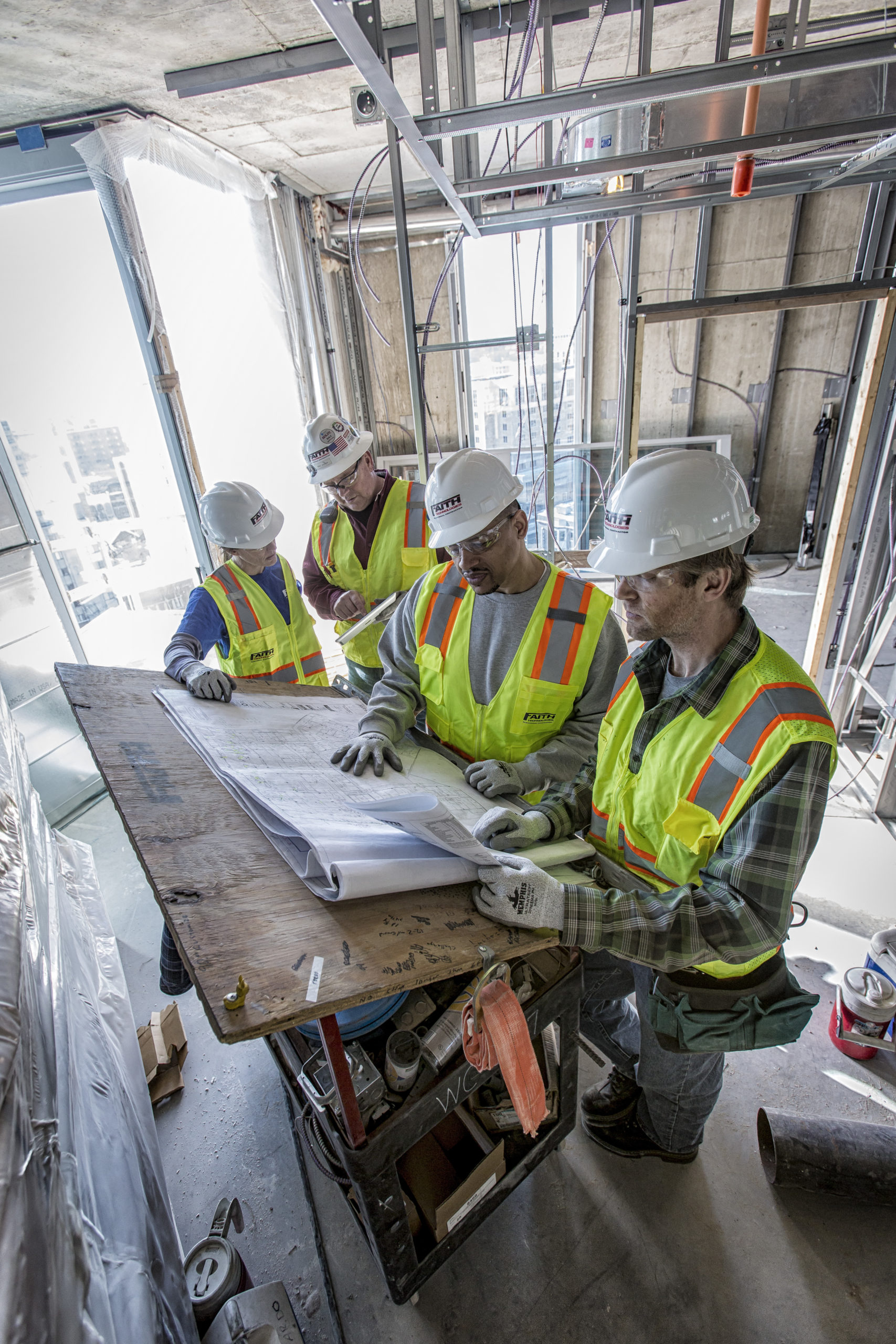02.02.2016
Productivity’s Big Four
 I cringe when I hear someone say “don’t sweat the small stuff”. To make gains in productivity, we must be willing to take a fresh look at things that fall into the category of “we’ve always done it this way”. I challenge you to consider the following four practices to make improvements on your jobsite.
I cringe when I hear someone say “don’t sweat the small stuff”. To make gains in productivity, we must be willing to take a fresh look at things that fall into the category of “we’ve always done it this way”. I challenge you to consider the following four practices to make improvements on your jobsite.
1. Daily Planning. We all know how important planning is, but the lack of planning continues to be one of the top reasons for waste and workers compromising the safety of themselves and others. We need to plan not only when we arrive at work, but throughout the day. Here are a few things to ask ourselves at the start of each task:
- How do I complete the work safely?
- Do I fully understand the task?
- How much material do I need?
- What tools will I need? Do I need a cart?
- Does my task require a tool belt?
- In what order will I execute the work?
- What are my goals today?
2. Top Notch Communication. It is extremely important to communicate seamlessly with our project work team, WITHOUT leaving our work areas. Two way radios are very important for productivity at Faith Technologies. Cell phones are not two way radios and are NOT as effective. Two way radios are considered “instant communication devices”, you push the button and talk. On the receiving end you don’t have to answer the call, it broadcasts it automatically. Everyone on your channel can hear the discussion creating increased communication “awareness” for the entire crew. Two way radios are NOT just for wire pulls, they need to be used 100% on every job we have. Make no bones about it; two way radios are our number one productivity tool.
3. An Effective Material Handling Strategy. “If everybody is assigned a task, nobody is assigned the task.” On average, 10-15% of the total materials ordered for construction projects are unused or end up as waste (WRAPa, 2007). Too often on our projects no one is assigned the task of being the “material handler”. So, who does this important task? Most often, that task is assigned to our Foreman or Superintendent and, in some cases, multiple people are completing the same thing. Assigning a person as the project’s material handler brings many benefits.
- First and foremost, it keeps more of our employees installing. If the material handling role is assigned and everyone understands the plan, more of our people can focus on what the customer is paying us to do – Install.
- The material handler is receiving all materials and tools coming into the project. This one person understands where everything is so the project is less likely to misplace materials.
- The material handler is organizing the project setup(s). All materials are organized daily and inventory levels are monitored. 6S, Safety, Sort, Simplify, Shine, Standardize, and Sustain, is very important and can be utilized to cut down on time spent looking for items that are not there.
- The material handler notifies the project Superintendent of material needs or possible returns of excess material. On large projects, sometimes material gets double ordered because the orders are not flowing through one person.
- In conjunction with two way radio usage, the material handler can be used to run parts to our workers, so they can stay on task. By keeping our work force on task we can consistently reduce waste.
4. Complete Collaboration. Faith’s electrical construction role is highly dependent upon all of the trades on the project completing their work as scheduled. Lean Construction as a strategy has proven successful when the General Contractor supports this strategy and engages all trades in working together as a cohesive team. However, this is not easy and there is not a specific recipe for success. Every job is different and will require a fresh look and tailored approach. We must recognize this as a tangible need on our projects so we train our new field leaders on how they can achieve this.
It’s essential to continually review, reinvent and reinvest in the things that can improve a project’s productivity. At Faith Technologies, we are constantly looking to make improvements by motivating our workers and providing them with the best tools and strategies possible to perform their work safely and efficiently. When it comes to productivity, we aren’t afraid to “sweat the small stuff” and you shouldn’t be either. After all, you might find that your project’s productivity will change – for the better!
If you enjoyed this blog article, please subscribe to stay up to date on the latest industry news from our experts at Faith Technologies.



